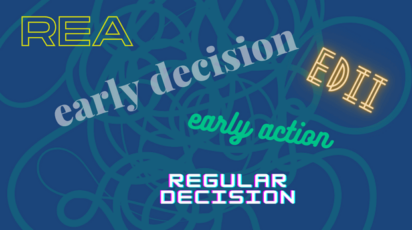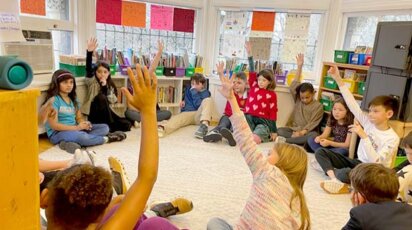News
Election 2020 Student Forums Foster Discourse
Tomorrow is Election Day. Over the course of the last several weeks, Poly students and faculty gathered for two virtual Election Forums for conversations about our country’s polarized political landscape and how to help manage the potential uncertainty of election night and beyond.
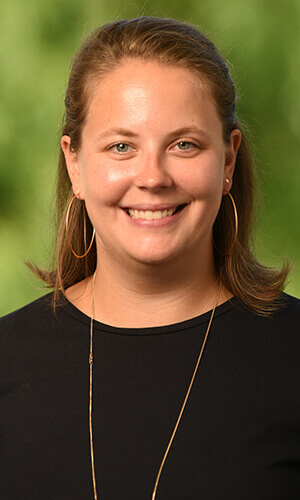
“Election 2020: Why Are We So Polarized?”
In the first forum, on September 25, History Department Chair Maggie Moslander moderated “Election 2020: Why Are We So Polarized?” Moslander asked the students to consider the consequences of polarization. She said that increasingly, “political party ID has become part of our personal ID” and that “over time the parties are getting further apart.” She noted we are experiencing a “loss of overlap in political values.”
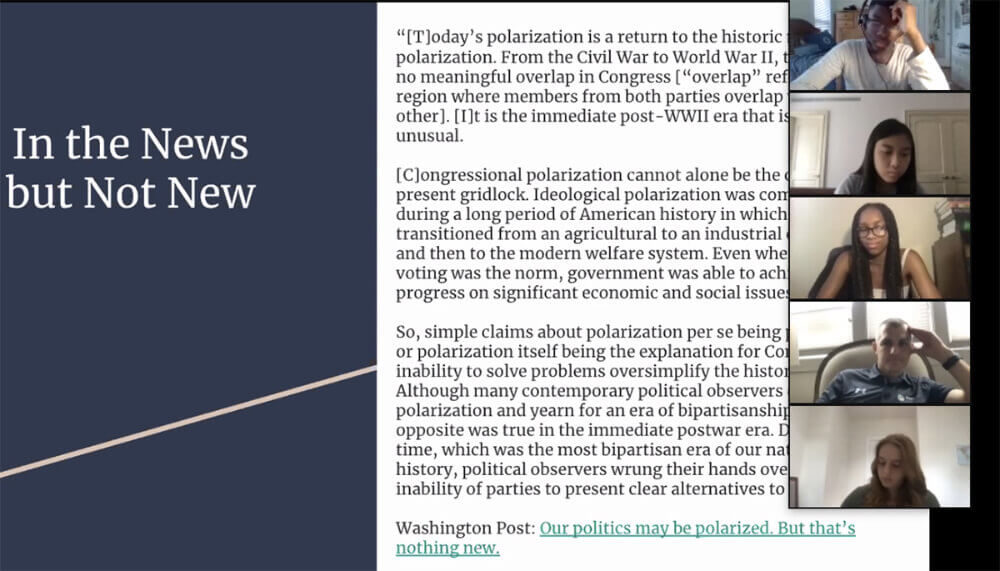
“This concern about polarization is not new,” said Moslander. “Polarization is not new.” She used as an example that after World War II there was concern that the political parties “were not different enough from each other.” She shared a clip from an interview with Jill Lepore, author of These Truths: A History of the United States on CBS This Morning about putting the current polarization into context and highlighting the role women played in America’s political history.
A faculty member added for consideration, “If we imagine a world without social media do you imagine a world without polarization?” This led to the question of whether social media allowed people to engage in “performative activism” instead of actually doing something to make real change.
Students and faculty used breakout rooms for small group discussions.
“Election 2020 Forum: What If?”
Just days before the election, a second virtual forum, “Election 2020 Forum: What If?” was held on October 30. The forum asked, “How can we prepare ourselves to manage potential uncertainty around the election? What should we be paying attention to on election night and the days following?”
Again, Moslander served as host for the forum, noting that the election was already underway with early voting across the country. She said that the goals of the forum were to “get a sense of what to expect and what we shouldn’t expect.” Also, it provided a chance to manage uncertainty.
Moslander noted that journalist Masha Gessen has said that ideally, democracy is what would happen between elections.
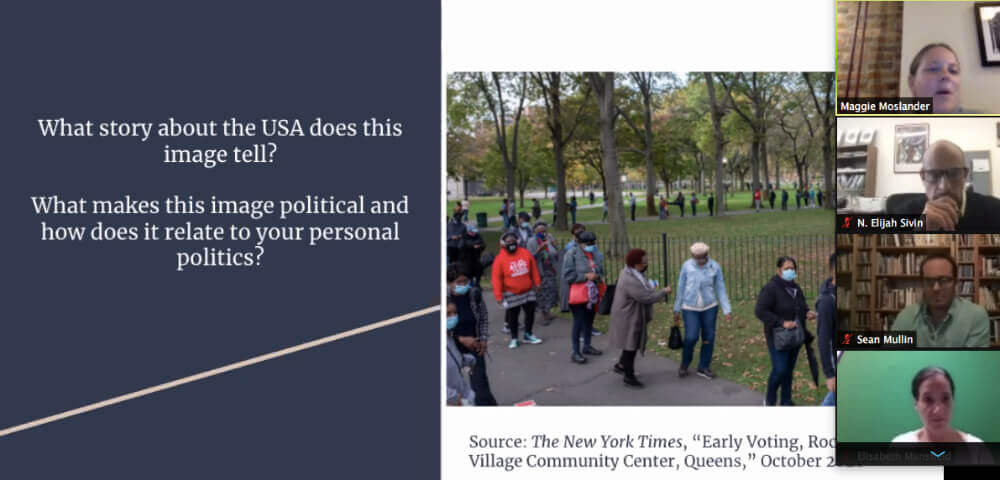
Moslander shared a news photo of people waiting to vote early in line outside, wearing masks and staying socially distanced. “What story does it tell?” she asked the faculty and students attending the forum. One student said she thought that people wearing masks were “making a political statement.” The image shows “a real different time in history,” someone said.
Moslander shared an NPR video with Miles Parks, “Why We Might Not Know Who Wins,” that stated there is a “very real chance we won’t know the results on Election Day.” Parks described how vote counting, especially of mail-in ballots, varies from state to state.
“We will have to practice patience,” Moslander said. She made a brief survey of “battleground states” and when we might know election results including Arizina, Florida, Georgia, Michigan, Pennsylvania, and Wisconsin. She noted that Florida is a “big pathway to victory.” In Georgia, mail-in ballots cannot be counted until after polls close. There is the potential for controversy in Pennsylvania where the question of extending the deadline for mail-in ballots has already gone to the Supreme Court. The Court allowed both North Carolina and Pennsylvania to accept absentee ballots for several days after the election.
In a video from The Washington Post, which Moslander shared, the narrator considered what happens if an election is too close to call and what triggers a recount.
The attendees then had a brief discussion about why it is so difficult to vote in the United States with voter registration, not having Election Day off as a national holiday, and why “we don’t force people to vote.”
As they went into breakout sessions, Moslander asked them to consider, “What are you most concerned about as you think about next week’s election? What do you need from your peers, from your teachers, and from the Poly community as a whole? What can you do to help our community navigate this election? How will you contribute to making our community safe, brave, and supportive? How will you encourage others to do the same?”
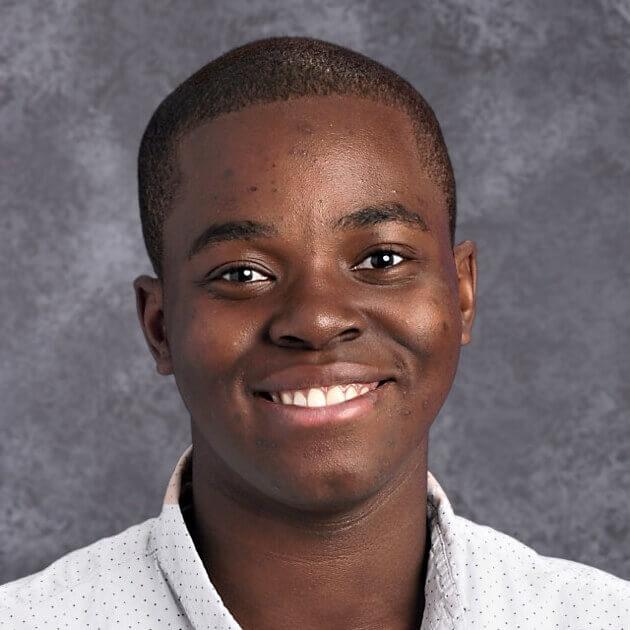
Ryantony Exuma ’22 said, “The election forum was a very revealing and informative one in terms of how it demonstrated the Poly community’s awareness around the very pertinent issues of voter suppression, misinformation, chaos following the election, and possible solutions to all of these problems. Other things that were notable and vital also came up throughout the forum. For example, the beginning presentation was an important counter to the dedicated misinformation campaign that has been waged against people across the nation and it emphasized that it is okay for the counting of mail ballots to take time and that patience will be key in this election. Overall, it was very assuring to hear that many other attendees had the same concerns and anxieties as I do, were aware of their origins, and are committed to figuring what could be done to solve it.”
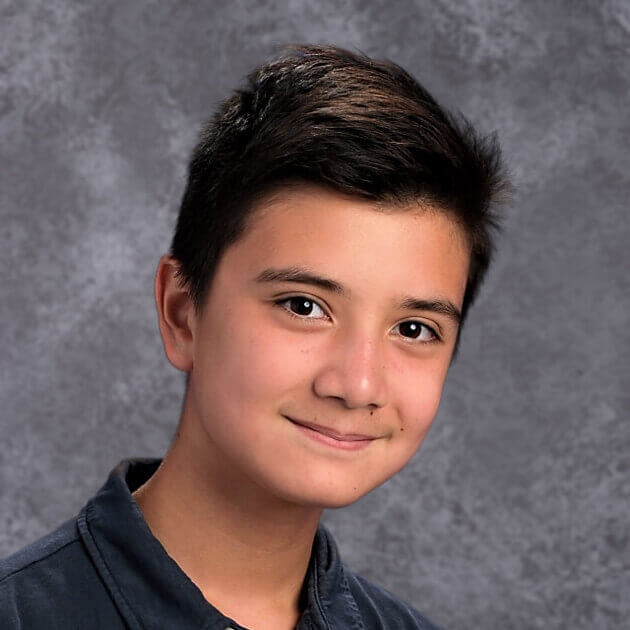
Afterward, William Ling-Regan ’24 said, “This forum made me understand how complicated voting in the U.S. is, and that there are a lot more challenges to voting than most people realize. In addition to the pandemic, there are state laws that make voting harder and affect different groups disproportionately.”


